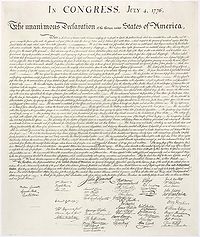It’s interesting that at a time when American corporations and the wealthiest in the country are being taxed at rates that are lower than at any other time during the last 100 years, one of the major political parties is trying to convince Americans that if we do not lower taxes even further on these players, then they will cease to do us the honor of creating the wealth that our nation desperately needs. Now despite that this is simply factual nonsense (during the largest periods of growth during the last century corporations and wealthy citizens, including Mr. Romney Sr., co-existed with a much higher tax burden), this makes no psychological sense. The drive to make money and to succeed, even at the top, is not that tax sensitive. Our wealthiest citizens are not going to suddenly elect poverty because they have to pay the taxes of their fathers. As mentioned, higher taxes during the 1950 and 60s and during Reagan and Clinton didn’t stop the rich Americans from becoming rich.
But one of the biggest problems our nation faces is a psychological disorder, a vicious self-fulfilling prophecy, where people are so convinced that their success and/or failure is due to their own merit, that they are completely disconnected from reality. This inevitably leads to a continuous cycle of nepotism, where those who merit success are limited to those who already belong to the club of the elite, while those who do not belong repeatedly fail, and said failure denies them the merit to achieve success.
In other words, where a society so values success and almost blindly believes that success is solely attributed to one’s own merit, anyone who is successful or unsuccessful is presumed to deserve their station in society, and society is completely and unquestionable content with and accepting of the consequences of having people who succeed disproportionately and those who fail miserably. So for example, we are fully capable of accepting that a corporation can outsource (don’t say “offshore”) jobs and slash employee salaries while increasing executive pay to amounts that simply do not coincide in any shape or form with the reality of the executive’s performance. Yet this disconnect is disregarded, ignored. The CEO achieved the American dream because he [must have] worked harder than all those salaried employees. Continue reading





